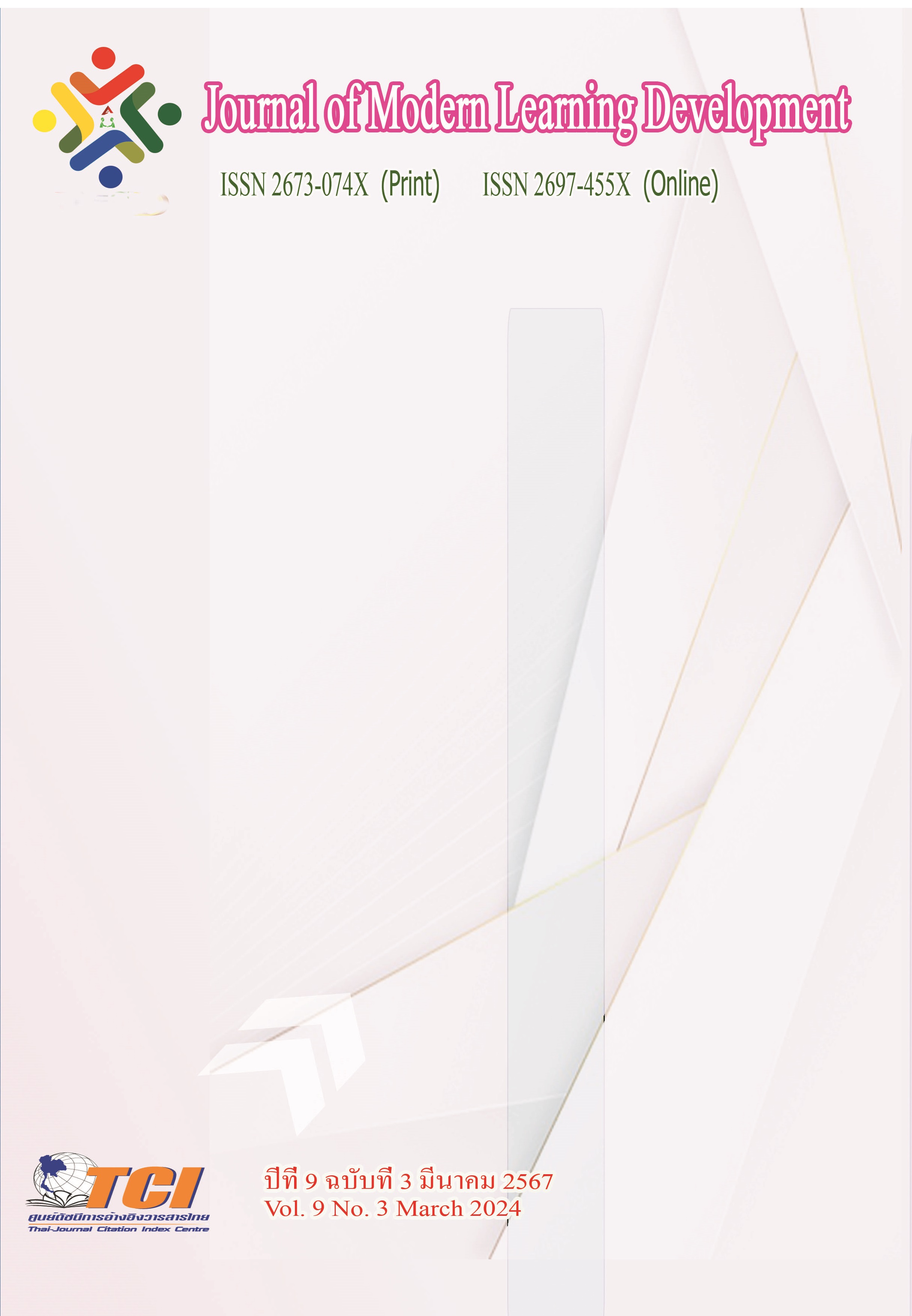An Evaluation of Bachelor of Education Program in Thai Faculty of Education, Ramkhamheang University
Main Article Content
Abstract
This research study for evaluating the curriculum of the Degree of Bachelor of Education (Thai language), Faculty of Education, Ramkhamhaeng University aims to 1) evaluate the curriculum of the Degree of Bachelor of Education (Thai language), Faculty of Education, Ramkhamhaeng University, and 2) investigate the means in developing and improving the curriculum of the Degree of Bachelor of Education (Thai language), Faculty of Education, Ramkhamhaeng University. This study was employed by means of CIPPI, proposed by Daniel L. Stufflebeam. The target groups of this study were honorary committees, faculty administrative staff, lecturers, present students, graduates, and graduates’ employers. The research instruments were interview and questionnaire. The data were analyzed by employing descriptive statistics (frequency, percentage, means and standard deviation) as well as content analysis. The research findings were as follows:
1. Context. The level of appropriateness was ranked as high, especially extremely high in curriculum implementation plan and lecturer development. The strength of the curriculum was that the lecturers obtained the degrees that met the needs of the curriculum. The lecturers were also expert in this field.
2. Input. The level of appropriateness was ranked as extremely high, especially in contents in the curriculum, lecturer appointments, and student selection.
Process.
3. The level of appropriateness was ranked as high, especially in lecturers’ behaviors and instructions.
4. Product. The level of appropriateness was ranked as high, especially in moral and ethical characteristics.
5. Impact. The graduates’ employers were highly satisfied with graduates’ performances.
Article Details
References
Buranasinvattanakul, K. (2018). The Evaluation of Bachelor of Education Program in Thai (5 year), Faculty of Humanities, Srinakharinwirot University. Journal of Education, Silpakorn University. 16 (1), 132-145.
Homfung et al. (2016). Evaluation of Bachelor of Education Programin Thai, the Faculty of Education, Silpakorn University. Veridian E-Journal, Slipakorn University. 8 (2), 1812-1823.
Janpleng, J & Chookhampaeng, C . (2019). The Curriculum Evaluation of Bachelor of Arts Program in English, Faculty of Humanities and Social Sciences, Mahasarakham University. Silpakorn Educational Research Journal . 11 (1), 382-396.
Panakul, S. (2012). Curriculum Evaluation. Bangkok: Ramkhamhaeng.
Pandee, M., Kositchaivat, S & Jantarach, V. (2022). An Evaluation of Bachelor of Education Program in English,Faculty of Education, Silpakorn University. Journal of Education, Silpakorn University. 19 (2), 415-431.
Panich, W. (2012). The way to enhance learning for student in the 21stcentury. Bangkok: Sodsri-Saritwong Foundation
Phoyen, K, et al. (2023). An Evaluation of Bachelor of Arts Program in Psychology Faculty of Education, Silpakorn University. Silpakorn Educational Research Journal. 13 (1), 274-289.
Samranjit et al. (2012). The Evaluation of Bachelor of Education (5 Years) Faculty of Education, Ramkhamhaeng University. Bangkok: Faculty of Education, Ramkham haeng University.
Sinlarat, P. (2014). Sattalak for Leader Teacher. Bangkok: Collage of Education Science, Dhurakij Pundit University.
Stufflebeam, D. B. (2007). Evaluation theory, models and applications. San Francisco: Jossey-Bass.
Yamsang, N. (2017). The Evaluation of Master of Education in Mathematics Education Faculty of Education, Ramkhamhaeng University. Journal of Research and Development, Humanities and Social Sciences Valaya Alongkorn, 12 (1), 95-103.


